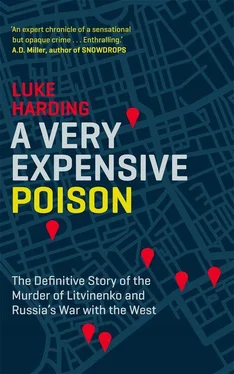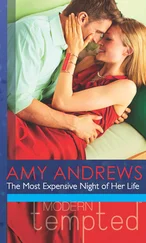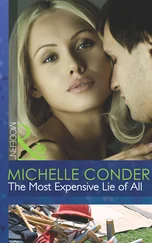* * *
The mood in eastern Ukraine after the events on the Maidan was, broadly speaking, hostile to Kiev. As one protester told me: Yanukovych may have been a crook, but he was our crook. There was overwhelming support for greater autonomy. There was also backing for Russian to be given the status of an official state language. However, educated Ukrainians in Donetsk welcomed Yanukovych’s demise. Opinion polls taken before the president’s flight indicated that the separatists were a minority. Some 26 per cent in the east supported union with Russia.
In Donetsk’s main square – its statue of Lenin a stroll away from a branch of McDonald’s – the communists held regular anti-Kiev rallies. Most communist supporters were pensioners. There were further pro-Russian demonstrations in the city’s main boulevard. They ended in front of the now-occupied administration building, its balcony adorned with Russian and Donbas flags. A sound system pumped out a string of schmaltzy Russian disco numbers.
Those who took to the streets expressed frustration – at the new government in Kiev, which they believed to be illegal, and at the failures of the Ukrainian state since 1991. Most expressed nostalgia for the Soviet Union. Many were unemployed or in low-paid jobs, I discovered. There was admiration for Russia, which, judging from the shiny version presented by Russian state media, looked like a prosperous and well-run state. Several insisted that those who took part in the Maidan were drug addicts or CIA agents, a claim made repeatedly by Yanukovych’s TV channels.
Still, this didn’t quite feel like a revolution. The crowds outside the occupied Donetsk HQ were often sparse. There were counter-rallies by pro-Ukrainian groups waving blue and yellow flags. The city’s football team, Shakhtar Donetsk, played in a stadium built for the Euro 2012 championship by the oligarch Rinat Akhmetov, a close ally of Yanukovych’s. Shakhtar’s hardcore supporters – ultras – opposed Russia. During the last match of the season several hundred of them jumped up and down in Ukrainian colours and sang: ‘Putin is a prick.’
By April, however, outside forces were coordinating what Moscow dubbed ‘the Russian spring’.
Previously, separatism had attracted little electoral support here. Now, it got a pseudo-historical makeover. Putin made reference to Novorossiya – or New Russia – a ‘country’ encompassing Ukraine’s eight Russian-speaking regions or oblasts , stretching in a southern and eastern arc as far as Odessa and the breakaway Moldovan territory of Transnistria. Novorossiya was a made-up entity. Nevertheless, the flag of ‘Novorossiya’ soon hung from rebel buildings.
The new government’s control over events was slipping away. I watched as a crowd of 300 pro-Russian activists marched through Donetsk, ripping down Ukrainian flags. They seized the city’s TV station, a neo-classical Stalinist building in the east of the city. Masked youths armed with baseball bats ran up the DNR flag from the roof; three men in balaclavas and armed with Kalashnikovs supervised.
The station’s director, Oleg Dzholos, emerged from the building, shaken. He said the separatists had brought with them a technician from Moscow. The technician switched off Ukrainian broadcasts and replaced them with Rossiya 24. The Russian state channel frequently denounces Ukraine’s leaders as ‘fascists’ and runs montages of them with the Nazis. The capture of the TV tower was part of an unfolding plan: to shut out information critical of Moscow and to replace it with Kremlin propaganda.
The suspicion was that the Kremlin – and in particular its main military intelligence directorate, the GRU – was choreographing the takeover of eastern Ukraine. It was making use of three groups: veterans with military experience of the Soviet war in Afghanistan; members of sports clubs; and local mafia networks. Pro-Ukrainian activists said that Russia had recruited numerous agents inside the local police and security forces.
The DNR’s new ‘defence minister’ was Igor Strelkov, a Russian citizen and GRU colonel. His real family name was Girkin. Strelkov was a veteran of conflicts in Chechnya, Bosnia and Transnistria who would become a cult figure in Russia. In Crimea, he supervised the Russian military invasion. He advised Aksyonov, the Moscow-appointed PM. In early April, Strelkov left Crimea for Donbas. He was going to start a war.
Strelkov later told Russian media he crossed the Russian–Ukrainian border with a squad of Russian special forces officers. His group included fifty-two undercover soldiers. They seized Slavyansk and in the days that followed kick-started the occupations of municipal buildings. ‘It was me who pulled the trigger of war,’ Strelkov told the Zavtra newspaper. Strelkov said that without his ‘decisive’ contribution the pro-Russian uprising in Donetsk would have fizzled out – as it did in the cities of Kharkiv and Odessa.
* * *
The response from Europe to the major crisis unfolding on its eastern border was feeble and unconvincing. Putin’s land grab in Crimea was the first formal annexation of territory in Europe since 1945. By spring 2014 it was clear that Russia was laying the ground for a full-scale military conflict in Donetsk and Luhansk. Money, heavy weaponry, intelligence, political support and soldiers – some disguised as ‘volunteers’, some from regular Russian army units – were flowing into the new DNR and LNR.
There were two possible scenarios. One, the Kremlin might seek to annex these regions, as with Crimea. Two, it might establish puppet enclaves, controlled by Moscow. These pseudo-statelets would be similar to other disputed regions already occupied by Russian forces. They included Transnistria, where Russian troops had been stationed since the 1990s, and the breakaway Georgian micro-territories of South Ossetia and Abkhazia.
Putin’s aims were uncertain. Perhaps the president didn’t know himself. They went beyond territorial gain. They must have included undermining the pro-western government in Kiev and embroiling it in a debilitating on-off war. Analysts used the term ‘frozen’ to describe unresolved post-Soviet conflicts. But frozen wasn’t the right word here. Rather, Moscow could turn the temperature up or down in the Donbas, depending on political need. There could be diplomacy and ceasefires; military offensives and covert actions; or both at the same time.
The crisis was a fundamental challenge to Europe’s security order. This system – with the exception of the war in former Yugoslavia – had kept the peace for almost seventy years. Its principles were partnership and international law. In 1994, the US, UK and Russia had guaranteed Ukraine’s international borders. All parties signed a treaty, the Budapest Memorandum. Ukraine agreed to give up its stockpile of nuclear weapons, at the time the world’s third largest. In exchange it got security assurances, worthless ones.
Russia was turning the clock back – to an era of great powers and spheres of influence. Its foreign-policy officials floated the idea of holding a second Congress of Vienna – in effect, a new carve-up of Europe. (At the first one, back in 1815, Europe’s victorious nations met to decide the fate of the continent following the defeat of Napoleonic France.)
This plan built on Medvedev’s 2008 comments that Russia had ‘privileged interests’ in its post-Soviet ‘near abroad’. In effect, this meant that Moscow believed it had the right to veto the security and foreign policy of neighbouring states. In particular, it was entitled to prevent them from joining Nato. The Russian government viewed Nato as an implacably hostile and encircling force.
Putin had never thought much of Ukraine’s sovereignty. According to Poland’s former foreign minister Radoslaw Sikorski, cited in leaked US diplomatic cables, Russia’s president described Ukraine as a ‘cobbled together country’ with 6 million Russians in it. Now, it appeared, Moscow regarded its neighbour as sub-sovereign. It was to be treated as a rebellious colony or misbehaving province – like Hungary in 1956 or Czechoslovakia in 1968, where tanks met anti-Soviet uprisings.
Читать дальше












